The Benefits of Composting: Turning Food Waste into Nutrient-Rich Soil
This post contains affiliate links. I may earn a commission at no extra cost to you if you make a purchase. Note that I’m not a health or outdoor safety professional, so further research is advised. Your support keeps Outdoors A-Z running—thank you! Read the full disclosure.. Read the full disclosure here.
Composting is a sustainable practice that offers numerous benefits for the environment, gardeners, and communities. By diverting food waste from landfills and transforming it into nutrient-rich soil, composting helps reduce waste, improve soil fertility, and conserve resources. In this article, we will explore the advantages of composting and provide practical tips for successful composting.
Table of Contents
Introduction
Composting is more than just a way to manage food waste—it is a powerful method to create a closed-loop system and contribute to a healthier planet. When organic materials such as food scraps, yard waste, and other biodegradable items break down, they undergo a natural process called composting. This process converts these materials into compost, a nutrient-rich soil amendment that can be used to enrich gardens, landscapes, and agricultural fields.
Environmental Benefits
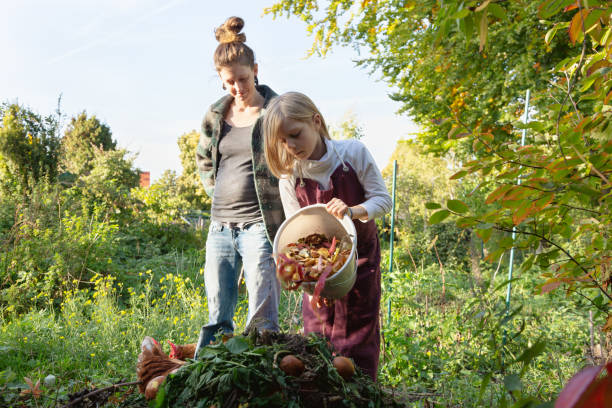
Reducing Landfill Waste
Food waste is a significant contributor to landfill waste. When organic matter decomposes in landfills, it produces methane, a potent greenhouse gas that contributes to climate change. Composting diverts organic waste from landfills, reducing the amount of methane released into the atmosphere and easing the strain on waste management systems.
Decreasing Greenhouse Gas Emissions
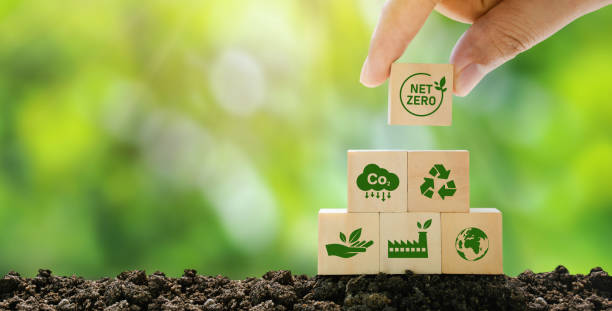
Composting helps mitigate greenhouse gas emissions by reducing the need for landfilling and incineration. By composting organic materials instead of disposing of them in landfills, we can significantly decrease the release of methane and other harmful gases. This positive environmental impact contributes to the fight against climate change.
Conserving Water Resources
The use of compost improves soil structure and enhances moisture retention, reducing the need for excessive watering. By incorporating compost into gardens and agricultural fields, water efficiency is enhanced, leading to reduced water consumption. Composting, therefore, plays a vital role in conserving our precious water resources.
3. Soil Enrichment and Fertility
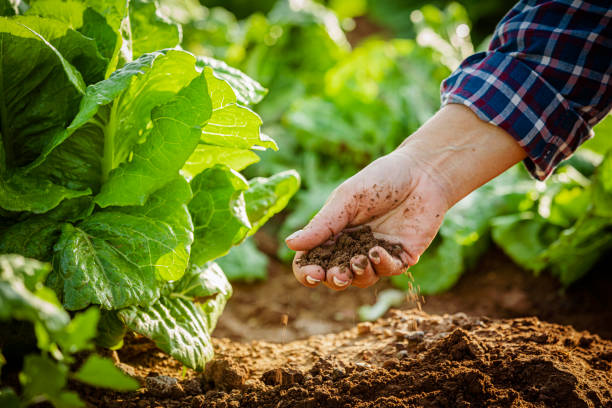
Nutrient-Rich Soil
Compost is often referred to as “black gold” due to its high nutrient content. It enriches the soil with essential elements like nitrogen, phosphorus, and potassium, promoting healthy plant growth. Compost also contains micronutrients and organic matter that improve soil health and support beneficial microbial activity.
Improved Soil Structure
The organic matter in compost helps improve soil structure by enhancing its ability to retain water and nutrients. Compost acts as a sponge, preventing soil erosion and runoff while ensuring optimal conditions for plant roots to penetrate the soil. This leads to stronger, more resilient plants and reduced soil compaction.
Enhanced Moisture Retention
Compost has excellent moisture-holding capacity, making it an ideal addition to dry or sandy soils. The organic matter in compost acts as a reservoir, holding moisture and gradually releasing it to plant roots. This characteristic reduces water loss through evaporation and enhances drought resistance in plants.
Cost Savings
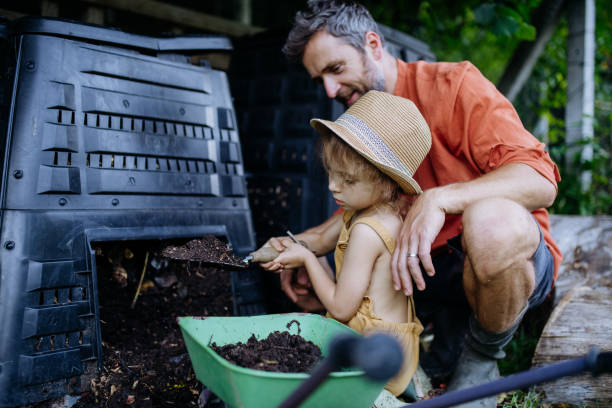
Reduced Need for Synthetic Fertilizers
Compost provides a natural alternative to synthetic fertilizers. By using compost, gardeners and farmers can reduce their reliance on chemical fertilizers, resulting in cost savings. Compost replenishes soil nutrients, eliminates the risk of chemical runoff, and fosters long-term soil health.
Decreased Waste Disposal Costs
Municipalities and waste management systems incur significant costs in managing organic waste. Composting at home or supporting community composting initiatives helps alleviate the burden on these systems, potentially leading to reduced waste disposal costs and more efficient resource allocation.
Waste Reduction and Recycling

Diverting Food Waste from Landfills
Composting allows us to divert food waste from landfills, where it would otherwise release methane and contribute to greenhouse gas emissions. By separating food scraps for composting, we participate in a sustainable waste management approach that closes the nutrient cycle and minimizes environmental impact.
Closing the Nutrient Cycle
Composting enables the return of nutrients from food scraps and plant debris back into the soil. Instead of discarding these materials as waste, they are transformed into valuable compost. By closing the nutrient cycle, composting reduces the need for synthetic fertilizers and supports a more sustainable and circular approach to resource management.
Community and Personal Benefits
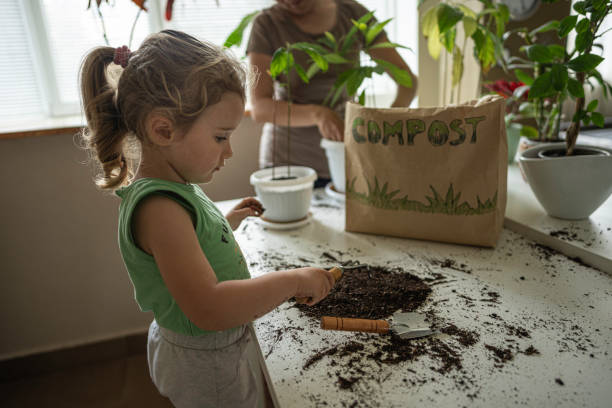
Engaging in Sustainable Practices
Composting provides an opportunity for individuals and communities to engage in sustainable practices. By actively participating in composting, we contribute to reducing our ecological footprint and taking responsibility for our waste. This sense of environmental stewardship fosters a deeper connection to nature and encourages others to adopt similar practices.
Personal Satisfaction and Connection to Nature
There is a sense of personal satisfaction that comes from composting. Witnessing the transformation of kitchen scraps and yard waste into dark, crumbly compost brings a sense of accomplishment. Composting also connects us to the natural world, reminding us of the intricate processes that sustain life on Earth.
Composting Methods and Techniques
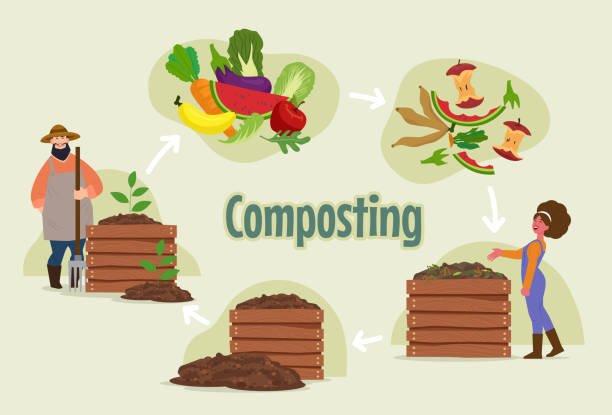
Composting can be done using various methods and techniques depending on the available space, resources, and personal preferences. Here are three common composting methods:
Backyard Composting
Backyard composting is suitable for homeowners with outdoor space. It involves creating a compost pile or using a compost bin to allow organic materials to decompose naturally. The pile needs a balanced mixture of carbon-rich (browns) and nitrogen-rich (greens) materials, regular turning, and moisture management.
Vermicomposting
Vermicomposting utilizes worms, typically red wigglers or Eisenia fetida, to break down organic waste. It is ideal for those with limited space or who live in urban environments. Worms consume food scraps and produce nutrient-rich worm castings, also known as vermicompost. Specialized worm bins are used to create a favorable environment for the worms.
Aerated Static Pile Composting
Aerated static pile composting is a larger-scale composting method suitable for institutions, farms, or commercial operations. It involves creating a pile of organic materials that is periodically turned and aerated using a blower system. This method requires careful monitoring of temperature, moisture, and oxygen levels to ensure proper decomposition.
Tips for Successful Composting
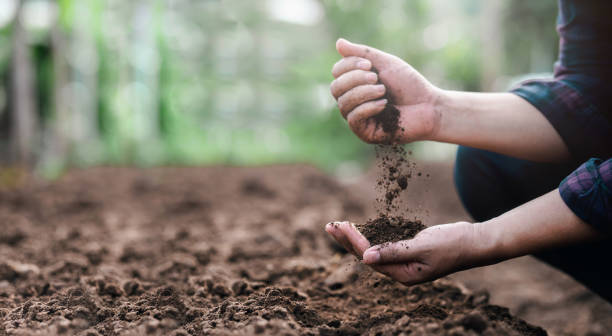
Balancing Carbon and Nitrogen
To achieve optimal composting, it is essential to maintain a proper balance between carbon-rich (browns) and nitrogen-rich (greens) materials. Browns include items like dried leaves, straw, and wood chips, while greens consist of food scraps, grass clippings, and fresh plant material. A ratio of approximately 3 parts browns to 1 part greens is recommended.
Maintaining Proper Moisture and Aeration
Compost piles require adequate moisture and oxygen for decomposition to occur. The ideal moisture level is similar to that of a damp sponge. Regularly monitor the moisture content and, if necessary, add water or dry materials to maintain the right balance. Turning the compost periodically helps promote aeration and even decomposition.
Monitoring Temperature and Turning the Pile
Composting generates heat as organic matter breaks down. Monitoring the temperature is crucial to ensure that the pile remains within the ideal range of 120 to 160 degrees Fahrenheit (49 to 71 degrees Celsius) for efficient decomposition. Turning the pile every few weeks helps distribute heat, mix materials, and accelerate the composting process.
Common Composting Mistakes to Avoid
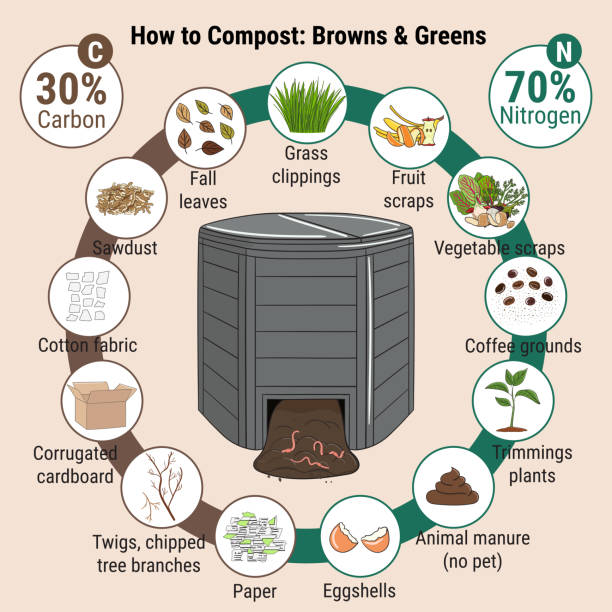
Adding Meat and Dairy Products
Meat, fish, dairy products, and oily foods should not be added to compost piles, especially in small-scale backyard composting systems. These items can attract pests, emit unpleasant odors, and take longer to break down. Instead, focus on composting vegetable scraps, fruit peels, coffee grounds, tea leaves, and yard waste.
Neglecting the Carbon-to-Nitrogen Ratio
Maintaining the correct carbon-to-nitrogen (C:N) ratio is crucial for successful composting. A C:N ratio of around 30:1 or 40:1 provides an optimal environment for decomposition. Too much nitrogen-rich material can result in a slimy, smelly pile, while an excess of carbon-rich material can slow down decomposition. Adjust the ratio as needed by adding more browns or greens.
Ignoring Maintenance and Monitoring
Composting requires regular maintenance and monitoring to ensure proper decomposition. Neglecting the pile can lead to slow decomposition, unpleasant odors, or pest infestations. Regularly check the moisture level, turn the pile, and monitor the temperature. With proper attention, composting becomes a rewarding and successful endeavor.
Using Compost in the Garden
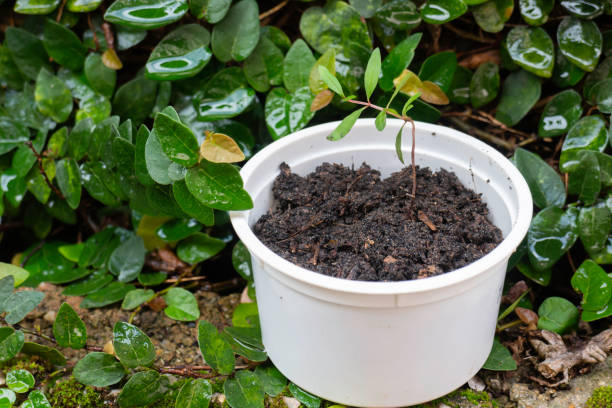
Soil Amendment and Topdressing
Compost is an excellent soil amendment that enriches garden beds and improves overall soil health. It can be mixed into the existing soil before planting or used as a topdressing around established plants. The nutrients and organic matter in compost enhance soil fertility, microbial activity, and plant growth.
Mulching
Applying a layer of compost as mulch provides numerous benefits. It helps suppress weed growth, conserves soil moisture, regulates soil temperature, and adds nutrients to the soil as it gradually breaks down. Mulching with compost improves the aesthetics of garden beds and promotes a healthy growing environment.
Starting Seeds and Potting Mix
Compost can be used as a component in seed-starting and potting mixes. Its nutrient content and water-retention properties create an ideal environment for seed germination and young plant growth. By using compost-based mixes, gardeners can provide a balanced and nutrient-rich medium for healthy plant development.
Composting in Urban Environments

Small-Scale Composting Options
In urban environments with limited space, composting can still be practiced. Options such as compact compost bins, worm bins, or bokashi composting systems are suitable for balconies, small yards, or even indoors. These methods allow urban dwellers to compost their food waste and contribute to sustainability despite space constraints.
Community Composting Initiatives
Community composting initiatives are gaining popularity in urban areas. These programs provide centralized composting facilities or shared compost bins where residents can deposit their organic waste. Community composting not only diverts waste from landfills but also fosters a sense of community engagement and cooperation.
Challenges and Solutions
Composting in urban environments can present challenges such as limited space, odor concerns, or attracting pests. However, these challenges can be addressed through proper composting techniques, using enclosed compost bins, regular maintenance, and education on best practices. With the right approach, urban composting can thrive.
Composting as a Business Opportunity
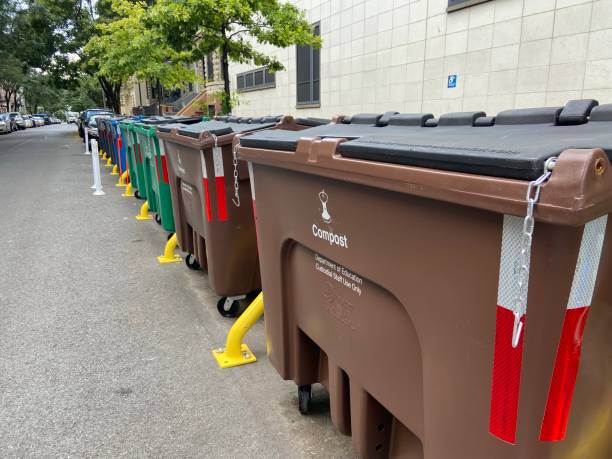
Organic Waste Management Services
Composting presents opportunities for entrepreneurs to offer organic waste management services. These services can involve collecting food scraps from households, restaurants, or businesses and composting them on a larger scale. Organic waste management businesses play a crucial role in diverting waste from landfills and producing valuable compost.
Compost Production and Sales
Another business opportunity is the production and sale of compost. By establishing a composting facility, entrepreneurs can convert organic waste into high-quality compost for use in agriculture, landscaping, and gardening. This not only contributes to waste reduction but also generates revenue from the sale of compost products.
Collaboration with Local Farms and Gardens
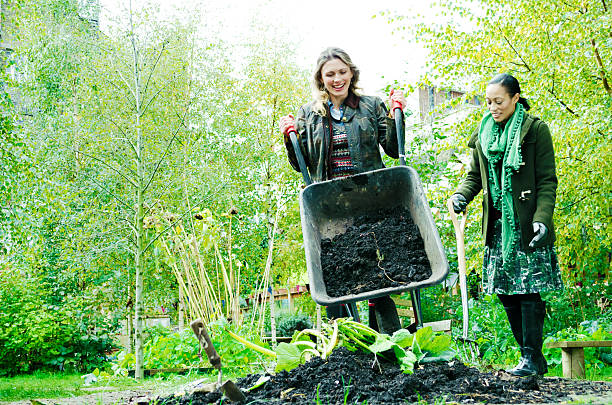
Composting businesses can collaborate with local farms and gardens to establish mutually beneficial partnerships. The compost produced can be used to enrich agricultural fields, community gardens, and landscaping projects. Such collaborations support sustainable agriculture, promote local food production, and strengthen community connections.
Composting Regulations and Best Practices
Local Regulations and Permits
Before engaging in composting activities, it is important to familiarize yourself with local regulations and obtain any necessary permits. Some municipalities may have guidelines regarding the size and location of composting systems, acceptable materials, or restrictions on composting in certain areas. Adhering to these regulations ensures compliance and responsible composting practices.
Odor and Pest Management
Proper management of compost piles is essential to minimize odor and prevent pest issues. Maintaining a balanced C:N ratio, turning the pile regularly, and keeping it adequately moist can help control odors. Additionally, avoiding the addition of meat, dairy, or oily food scraps and using pest-proof compost bins can reduce the risk of attracting pests.
Final Thoughts
Composting is a powerful and accessible solution to reduce food waste, promote sustainability, and enrich our soils. By turning food waste into nutrient-rich soil through composting, we can significantly contribute to environmental conservation, conserve water resources, enhance soil fertility, and reduce waste disposal costs. Composting not only benefits our gardens and agricultural fields but also cultivates a sense of personal satisfaction, community engagement, and environmental stewardship. Embracing composting as individuals, communities, and businesses empowers us to create a more sustainable and resilient future.
FAQs
Can I compost meat and dairy products?
It is generally recommended to avoid composting meat and dairy products. These items can attract pests and may take longer to decompose. Stick to composting vegetable scraps, fruit peels, coffee grounds, tea leaves, and yard waste.
How long does it take for compost to be ready?
The time required for compost to fully mature can vary depending on various factors such as the composting method, temperature, and the materials used. Typically, it takes around 3 to 6 months for compost to be ready for use.
Can I compost in an apartment or small space?
Yes, composting is possible even in small spaces. You can opt for methods like worm composting or use compact compost bins specifically designed for urban environments. These options allow you to compost your food waste and contribute to sustainability.
Is composting environmentally friendly?
Yes, composting is environmentally friendly. It helps divert food waste from landfills, reduces greenhouse gas emissions, conserves water resources, and promotes healthy soil and plant growth. Composting is a sustainable practice that supports a circular economy.
Can I use compost for indoor plants?
Compost can be used for indoor plants, but it should be mixed with other potting materials in appropriate proportions. A compost-based potting mix can provide nutrients and improve moisture retention for indoor plants.















